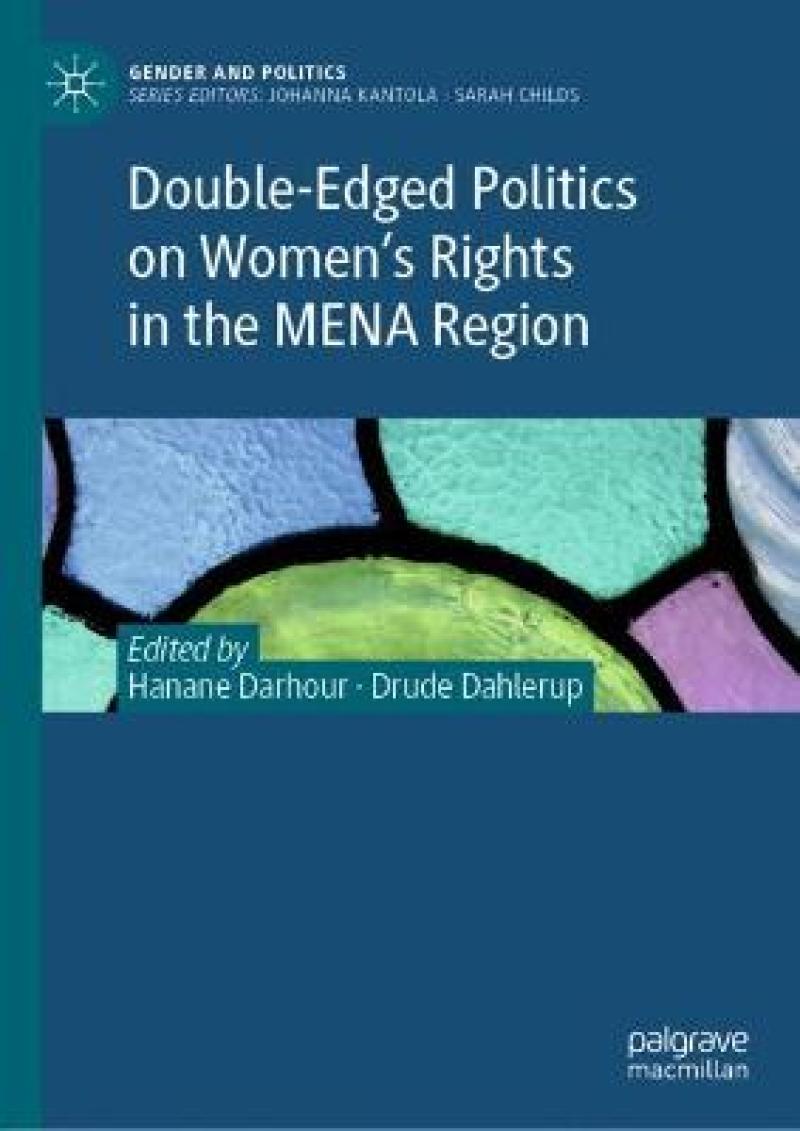While the Arab Uprisings presented new opportunities for the empowerment of women, the sidelining of women remains a constant risk in the post-revolutionist MENA countries. Changes in the position of women are crucial to the reconfiguration of state-society relations and to the discussions between Islamist and secular trends. Theoretically framed and based on new empirical data, this edited volume explores women’s activism and political representation as well as discursive changes, with a particular focus on secular and Islamic feminism, and changes in popular opinions on women’s position in society. While the contributors express optimistic as well as more pessimistic views for the future, they agree that this is a period of uncertainty for women in the region, and that support by ruling elites towards women’s rights remains ambiguous and double-edged.
Les mer
While the Arab Uprisings presented new opportunities for the empowerment of women, the sidelining of women remains a constant risk in the post-revolutionist MENA countries.
1. Introduction: The Arab Uprisings and the Rights of Women (Drude DAHLERUP and Hanane DARHOUR).- Part I: Women’s Rights, Feminism and Islamism.- 2. The Center: A Theoretical Framework for Understanding Women’s Rights in Pre- and Post-Arab Spring North Africa (Fatima SADIQI).- 3. Whose Gender Equality? On the Boundaries of Islam and Feminism in the MENA Region (Ilyass BOUZGHAIA).- Part II: Post-Spring Dynamics and Feminist Norm Diffusion.- 4. Cultural Change in North Africa: the Interaction Effect of Women’s Empowerment and Democratization (Ginger FEATHER).- 5. Changing Tides? On How Popular Support for Feminism increased after the Arab Spring (Saskia GLAS and Niels SPIERINGS).- Part III: Women’s Activism and the Reconfigured State.- 6. Women’s Activism in North Africa in Post Arab Spring (Moha ENNAJI).- 7. Political Opportunities for Islamist Women in Morocco and Egypt (Anwar MHAJNE).- 8. Contrasting Women’s Rights in the Maghreb and the Middle East Constitutions (Aili Mari TRIPP).- Part IV: Empowered or Sidelined? On Women’s Political Representation and Influence.- 9. Examining Female Membership and Leadership of Legislative Committees in Jordan (Marwa SHALABY and Laila ELIMAM).- 10. Empowering young women? Gender and youth quotas in Tunisia (Jana BELSCHNER).- 11. Whose Empowerment? Gender Quota Reform Mechanisms and De-democratization in Morocco (Hanane DARHOUR).
Les mer
While the Arab Uprisings presented new opportunities for the empowerment of women, the sidelining of women remains a constant risk in the post-revolutionist MENA countries. Changes in the position of women are crucial to the reconfiguration of state-society relations and to the discussions between Islamist and secular trends. Theoretically framed and based on new empirical data, this edited volume explores women’s activism and political representation as well as discursive changes, with a particular focus on secular and Islamic feminism, and changes in popular opinions on women’s position in society. While the contributors express optimistic as well as more pessimistic views for the future, they agree that this is a period of uncertainty for women in the region, and that support by ruling elites towards women’s rights remains ambiguous and double-edged.
Hanane Darhour is Associate Professor at the Polydisciplinary Faculty of Ouarzazate, Ibn Zohr University, Morocco. She is the author of Implementation of Electoral Gender Quotas: Evidence from the 2002 Moroccan Elections (2012).
Drude Dahlerup is Professor of Political Science at Stockholm University, Sweden, and Honorary Professor at Roskilde University, Denmark. She has published extensively on gender and politics, gender quota systems, the history of women’s movements, and theories of feminism, including Has Democracy Failed Women? (2018).
Les mer
“This great book outlines the mobilizations and contestations for women’s rights in a post-Spring divided MENA region. It shows how the Arab Spring is feminizing Islam while maintaining a powerful secular feminist movement. It is an important contribution highlighting how new modes of women’s activism have emerged; yet only a few doors have been opened for women’s empowerment in this period of uncertainty.” (Khedija Arfaoui, feminist activist and human rights researcher, Tunisia)
“The book chapters answer fundamental questions that previous studies could not answer and offer a unique insight into the position of women following the Arab Spring. They also provide an analysis of the various supportive and/or hindering factors of feminism and women's empowerment in the MENA countries. The editors of the book have a long history of contributing to the academic construction of feminism and the participation of women in public space.” (Gihan Abouzeid, Gender Expert, Egypt)
Les mer
Explores dynamics of gender and democratization in the MENA region Contributes to a growing comparative literature on women’s political representation Opens new avenues of thought and empirical research on the representation of women and the status of women’s rights reforms in the region
Les mer
Produktdetaljer
ISBN
9783030277345
Publisert
2019-10-29
Utgiver
Vendor
Springer Nature Switzerland AG
Høyde
210 mm
Bredde
148 mm
Aldersnivå
Research, P, 06
Språk
Product language
Engelsk
Format
Product format
Innbundet
Biographical note
Hanane Darhour is Associate Professor at the Faculty of Languages, Arts and Human Sciences, Ibn Zohr University, Morocco. She is the author of Implementation of Electoral Gender Quotas: Evidence from the 2002 Moroccan Elections (2012).
Drude Dahlerup is Professor of Political Science at Stockholm University, Sweden, and Honorary Professor at Roskilde University, Denmark. She has published extensively on gender and politics, gender quota systems, the history of women’s movements, and theories of feminism, including Has Democracy Failed Women? (2018).
